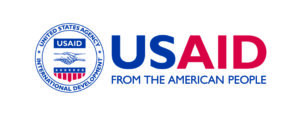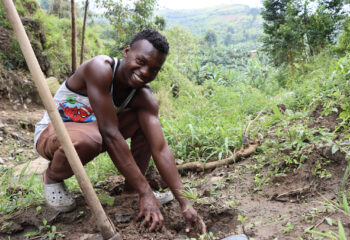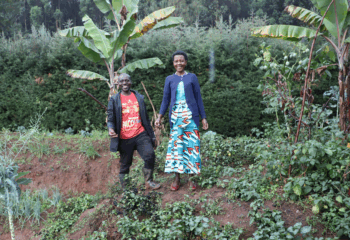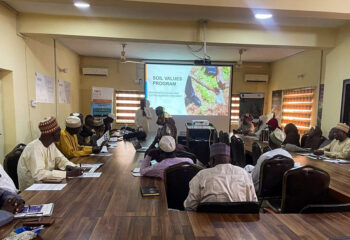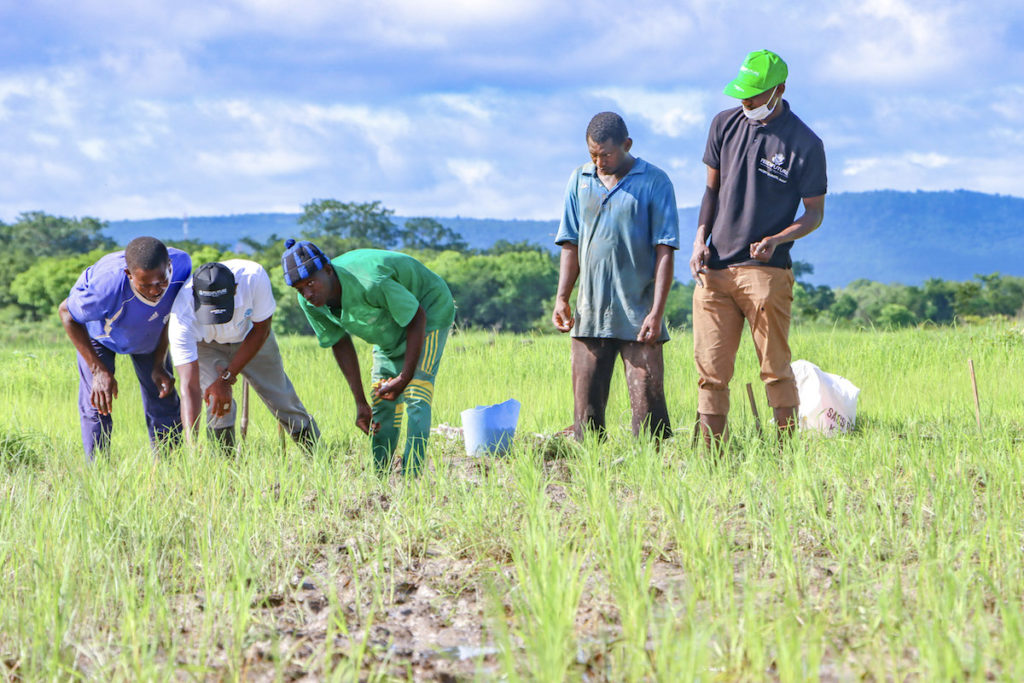
October 13, 2022 – West African fertilizer supply chain actors will soon have access to accurate and timely industry information, thanks to findings from the West Africa Fertilizer Cost Build-Up study and the West Africa Fertilizer Cost Simulator tool, which will be presented to stakeholders in a webinar on October 20, 2022, from 2:00 to 3:30 pm GMT.
Targeting more than 200 participants, the webinar will convene strategic stakeholders, including members of the West African Fertilizer Association, logistics stakeholders, public sector actors, regional institutions, financial partners, and donor organizations, involved in the fertilizer supply chain, from production and importation to blending operations and distribution down to the last mile.
The United States Agency for International Development (USAID) provided funding for this initiative through the Feed the Future Enhancing Growth through Regional Agricultural Input Systems (EnGRAIS) Project for West Africa, implemented by the International Fertilizer Development Center (IFDC).
“Our regional fertilizer supply chain actors have a lot of potential to support agricultural transformation across the West Africa region, but a lack of the necessary, timely, accurate, and well-packaged information on logistics and costs limits them in several ways. The new West Africa Fertilizer Cost Simulator will help stakeholders access important information on cost build-up along trade corridors and ports for better decision-making,” said Patrice Annequin, Chief of Party of the EnGRAIS project.
The cost build-up study, upon which the cost simulator was based, reveals the main bottlenecks and issues causing high prices at farm gates and delayed delivery. It also provides comparisons of the various corridors that can help fertilizer suppliers make better decisions in optimizing logistical options, reducing costs, and improving delivery time.
During the webinar, key findings of the “Structure of Logistics Costs and Fertilizer Import Procedures in West Africa” report, as well as a series of fertilizer port factsheets and process maps, will be unveiled. Participants will get a tour of the main functionalities of the online Fertilizer Cost Simulator.
Following the launch, in-depth online technical training programs and one-on-one assistance will be provided by the project for those interested in using the Fertilizer Cost Simulator.
These tools will help stakeholders address the fertilizer logistics cost challenges associated with supply chain activities and promote sustainable increases in agricultural productivity for improved food security in West Africa, a necessity in these times of crisis and high prices.
Notes to Editors:
Toplines: The West Africa Fertilizer Cost Simulator will be launched virtually on October 20, 2022.
- The Fertilizer Cost Simulator was developed based on findings from the Fertilizer Cost Build-Up study conducted along selected ports and trade corridors that supply most fertilizers to smallholder farmers in West Africa.
- The simulator is a free cost management tool for sourcing, importing, blending, and trading fertilizers in West Africa.
- The tool also evaluates costs of fertilizers imported to the region, whether straight, compound, or blended.
- In addition, it provides estimates on fertilizer costs, from free on board (FOB) to retail prices, using various logistic routes and operational options.
- The initiative is funded by the United States Agency for International Development (USAID) through the Feed the Future Enhancing Growth through Regional Agricultural Input Systems (EnGRAIS) project implemented by the International Fertilizer Development Center (IFDC).
About USAID: USAID is an independent agency that provides economic, development, and humanitarian assistance worldwide in support of the foreign policy goals of the United States. For more, visit: www.usaid.gov.
About IFDC: An independent non-profit organization, IFDC combines innovative research, market systems development, and strategic partnerships to identify and scale sustainable soil solutions for improved food security and livelihoods around the world. For more, visit: ifdc.org.
Contact: Felix Deyegbe (fdeyegbe@ifdc.org)
